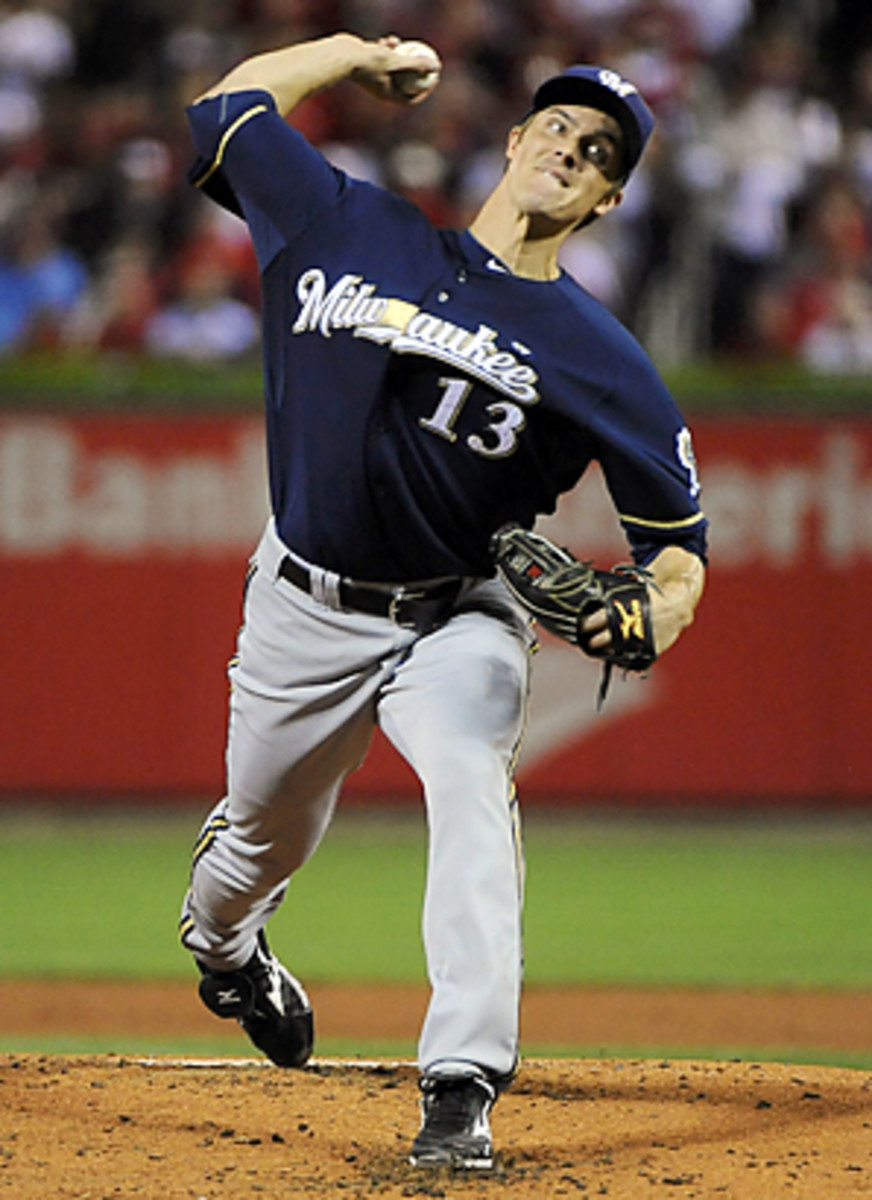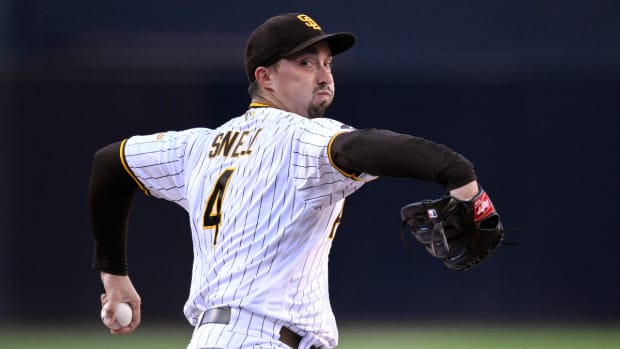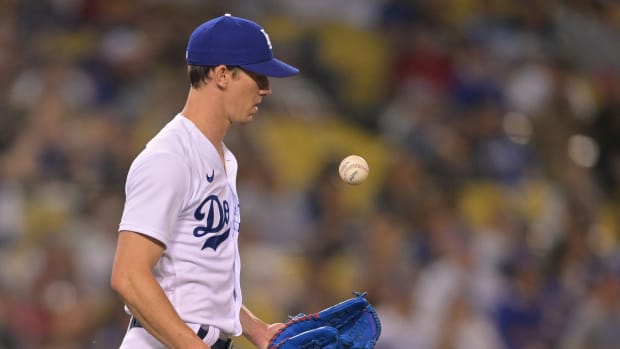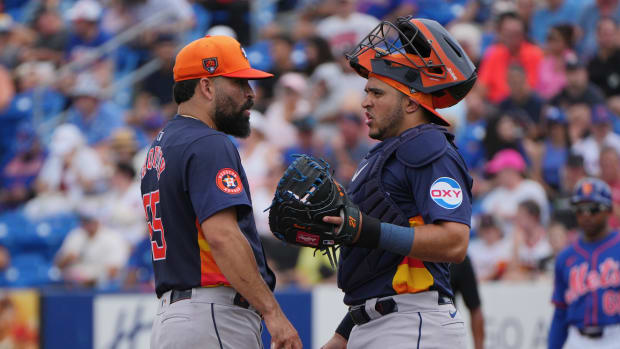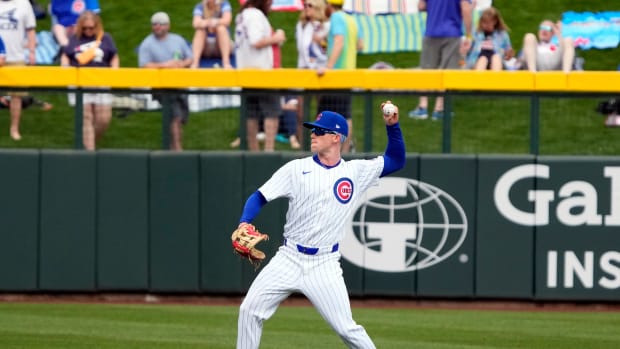Defense, pitching may be the best medicine for Brewers post-Fielder
Whether it's Clarence Clemons or Prince Fielder, it's hard to replace a big man. As it becomes increasingly apparent that the market for Fielder will be too expensive for the Brewers, Milwaukee appears destined to spend the rest of the offseason trying to replace their power-hitting star, but don't expect it to come in a straightforward way.
Doug Melvin's front office in Milwaukee isn't widely acknowledged as one of the most advanced in the game, but the staff isn't as old-school as their reputation. Melvin was one of the earliest general managers toemploy a statistical consultant, both when he was in Texas and when he moved on to Milwaukee. That effort has gained steam under the ownership of Mark Attanasio, whose portfolio management work gave him enough scratch to buy the team.
Gord Ash, Melvin's trusted Assistant GM, knows that the Brewers can't replace Fielder on a one for one basis. Aside from the already-signed Albert Pujols, there's no available equivalent player. The trade market is no better, especially with the Brewers farm system thinned at the upper levels by the trades that fueled the 2011 playoff run. "We have to have some semblance of a payroll," Ash said, "and a run's a run. We've already moved in the direction of run prevention."
The signings of Alex Gonzalez and Aramis Ramirez show that direction. Ramirez is a huge upgrade over the tandem of Casey McGehee and Jerry Hairston Jr. that the Brewers had last season. McGehee's collapse last season and impending expense pushed the Brewers to move him, but Ramirez has the potential to give the team about two wins over McGehee's production.
It's the same with Gonzalez. "He's worth [about] 30 runs over [Yuniesky] Betancourt," Ash explained. The stats and scouts back him up. But can any defensive improvement make up for the loss of a slugger who was an underrated defensive player?
That's where pitching comes in. The Brewers expect their starting staff will remain more or less intact, with perhaps a bit more depth at the back end. Milwaukee had 3.65 ERA last season, eighth-best in the majors, and ranked fifth in the game in total strikeouts. But only a full season from Zack Greinke and another healthy year from the other starters will offer any increase in production. An effort to keep Greinke clear of basketball courts (a place where Greinke injured his ribs before last season and thus missed the beginning of the 2011 campaign) should help, as will a good bullpen led by John Axford and the returning Francisco Rodriguez.
Adding another pitcher might not seem like the best way to replace a first baseman, but with Roy Oswalt willing to sign a short term deal and a top notch medical staff to keep his back healthy, Oswalt would be an immediate upgrade at the back of the rotation. Depending on whether Randy Wolf or Chris Narveson was pushed out of the rotation, Oswalt could be worth as much as one win. But clearly that wouldn't be enough to make up for the loss of Fielder.
The Brewers' most likely option is to fill in at first base with one of their internal candidates. The most likely is Mat Gamel, who is following Ryan Braun's path to the majors as a good-hit, bad-glove third baseman. Just as Braun found a home in left field, the Brewers hope that Gamel could find things easier at first. Gamel was described as "stone-handed" and "unnatural" at third base in the past, something to which I can attest, having seen him play a couple years at West Virginia (Class A). At first, he says it's "a lot less stressful," and he appears to be tolerable, if not good, defensively. His bat should eventually prove to be a weapon, though he hasn't done well in a couple short stints with the parent club. There are also some questions about his attitude after showing up for Spring Training out of shape in 2010. Add in the fact that Nashville (AAA) manager Don Money told reporters Gamel was "hard headed" and "didn't carry himself well" at the end of his season and it's clear the Brewers won't hand him the position.
Corey Hart, the lanky right fielder with surprising speed, could shift if the Brewers need him at first base. He's tall, athletic, and shouldn't have much trouble with the adjustment. The Brewers' outfield situation already is in flux with Braun facing suspension and the team uncertain whether Norichika Aoki is a good fit. Without Braun, the outfield could be full of speed, but almost completely absent power. Splitting the workable platoon of Nyjer Morgan and Carlos Gomez isn't going to help the team score runs.
A long shot for the position is Taylor Green. Canadians such as Green always get a long look with the Brewers -- both Melvin and Ash are Canadians -- but his bat will need to carry him. Green has developed power while coming through the Brewers system, but he profiles more in the Lyle Overbay mode (i.e. decent average, sub-optimal power). Green was promoted over Gamel late last season and was on the postseason roster as a pinch-hitter and corner backup. Though promising, Green is largely seen as an overachiever who is better suited as a four corners backup.
Despite an array of options, one National League GM was unimpressed: "There's no way to replace a player like Fielder or Pujols. Even in a situation like what the Rays had last year with [Carl] Crawford, there was a drop-off despite an heir apparent."
A scout who saw the Brewers late in 2011 agreed: "Gamel's a one-dimensional player. He came up with a lot of Robin Ventura comps and I never saw it. He's 26 and still hasn't established himself, mostly due to his glove. He hasn't proven he can hit major league pitching, though I think he can."
There are a few possibilities from outside the organization. Free agents Carlos Pena, Casey Kotchmann, and Derrek Lee all have good gloves, but only Pena is a credible hitter at this point in his career. He is coming off a one-year, $10 million deal with the Cubs and will surely be looking for a longer term contract, something the Brewers aren't likely to be offering. Pena is more likely to stay with the rival Cubs once they fall out of the Fielder bidding (and sources say they are out).
And, of course, there is the best option: keeping Fielder. While the Brewers have intimated that they're out of the bidding, Attanasio has made big pitches during his time as owner. This would be the biggest and would create real financial problems for the team, even if it kept filling up Miller Park and making the playoffs for the next decade. But the time is opportune for the Brewers. The Cardinals have their own replacement problem, the Cubs are years away from returning to contention and only the Reds seem a credible threat to take the division aside from the Brewers.
Should Fielder leave, the Brewers, realistically, will be hard-pressed to replace his production. But maybe it doesn't have to be in the short term. Milwaukee's signings show a commitment to run prevention that should lead to wins. The best way to strengthen that commitment is by upgrading the pitching, not overpaying for someone who won't fill the big hole -- literally and figuratively -- that Fielder left behind.






























